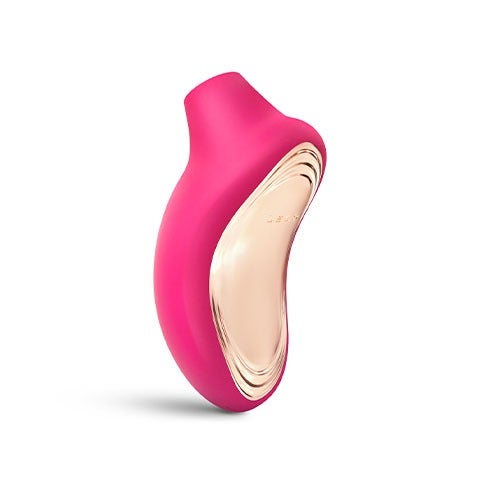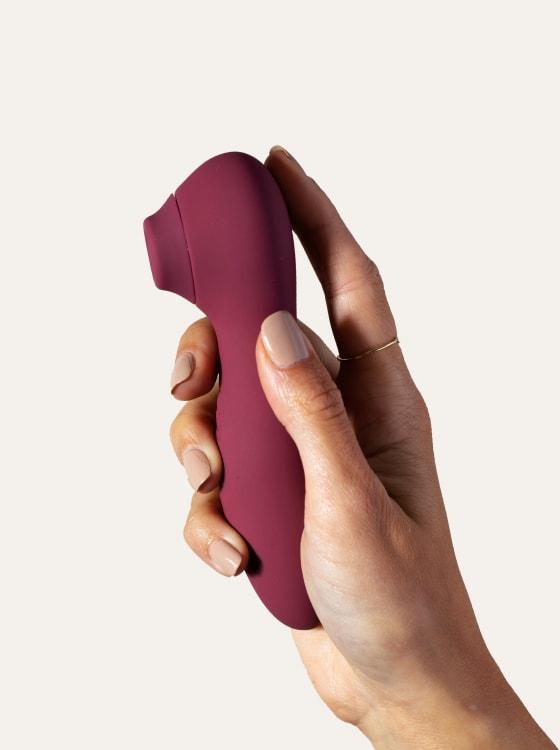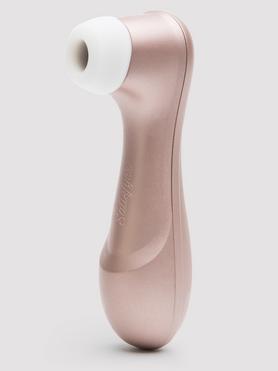Masturbation Shame Is Deeply Ingrained In Us, But We Can Undo It
At Refinery29 Australia, we’re here to help you navigate this overwhelming world of stuff. All of our picks are independently selected and curated by the editorial team, but we may earn commission or other compensation from the links on this page.
Growing up, there was no positive narrative around masturbation for women, only an unshakable air of guilt and shame. As a young woman, you experience so many changes in your body that are often deemed embarrassing — weight fluctuation, growing pubes, the shapes of our vulvas — that any kind of sexual exploration, especially masturbation, would often lead to feelings of embarrassment or disgust.
AdvertisementADVERTISEMENT
However, for young men, masturbation is much more visible. It was almost a right of passage and something they engaged in purely for pleasure from the moment they discovered it.
“These sexual scripts teach that masturbation is something young boys can joke about, compare stories and even bond over — they are taught masturbation is an impulse and something very normal and even biological for them to want and need. Though, for girls, women, LGBTQIA+ young people, they are taught that the very thought of them touching their body for pleasure is shameful, disgusting and wrong,” explains sex coach Georgia Grace.
The distinct difference of experience is understandable once you’re an adult. Education around sex in the school system is extremely limited and can often be summarised using that one line from Mean Girls; you know the one. And as a result, young people are left to their own devices, learning everything they know from porn or something they read on the internet. Which can often further compound the feelings of guilt and shame around sexual experiences like masturbation.
“Many people experience sexual shame as a result of limited education, misleading information, no access to sex-positive spaces or opportunities to inquire, religious teachings that condemn sex beyond procreation, and culture of taboo around sex, bodies and relationships, explains Georgia. “It’s setting people up for a lifetime of confusion and not so great sexual experiences.”
As a trickle-on effect, our sexual experiences as teenagers often give us a variety of baggage that affects and shapes the way we enter and engage in sexual relationships as adults. And despite growing up and realising that masturbation is nothing to be ashamed of — and is in fact now something to be celebrated in the name of self-care — it can still take women and people in the LGBTQIA+ community a lot of time and healing to move past the guilt that was so deeply ingrained in us.
AdvertisementADVERTISEMENT
As adults, we can access sex-positive information more easily. More professionals, like Georgia, and services, research, and activists create safe spaces to celebrate human sexuality. “It’s so wonderful that we’re now speaking openly about sex and equal pleasure”, says Georgia. “Though, I’m also noticing in sessions that people can experience the duality of valuing sex positivity but also struggling to embody it. They will often say, ‘I am a feminist, I spend my life researching, fighting for women’s rights, but I don’t understand why I still have this mental block’. We can think and value something and still struggle to embody it,” explains Georgia.
That duality is something I experience regularly. I write about sex for a living, I review vibrators and share it on the internet, and I’m very open about my sex life, and yet, when it comes to masturbation, I still sometimes catch feelings of guilt and shame creeping in.
Sexual shame is far greater than us, says Georgia. “It’s something most people experience — even the most sexually confident people. Eroticism is a process of imagination and expression that is a result of your unique human experience. Our erotic landscape includes, but isn’t limited to, thoughts, impulses, desires and is connected to all aspects of life, some pleasurable and others not. Understanding your eroticism can be intriguing, useful and may lead to a greater awareness of your sexuality which can support you in having fulfilling sex."
However, it can also be really confusing, explains Georgia. “Guilt and shame is such a delicate human experience that if it’s affecting you, it’s best to seek professional support. If you’re not quite at the stage of wanting professional support, try journaling about your experiences so you can externalise them and become more clear on what you need. The practice of journaling can support your sexual inquiry and clarify your thoughts and feelings. It will allow you to get to know your sensuality, reduce stress, work through fear or shame around sex, as well as track the patterns and themes of your sexuality.”
AdvertisementADVERTISEMENT
So how do we unravel what is so heavily entwined in our psyche? For most of us, it’s a process of unlearning and relearning that both masturbation and sex are not just about penetration. “It doesn’t have to be goal-oriented or end in orgasm. Rather it’s pleasure focused and whatever you want it to be. And that you need to learn about your body — and the best way to do that is through masturbation. It’s often a slow process of awareness and choice — because we’re working with a lifetime of social, cultural and political ideas about sex,” says Georgia.
Even as someone who knows all this, I still catch myself masturbating with the intention of getting it over with rather than finding it pleasurable — and, as Georgia explains, I’m not alone. “Most people have sex and masturbate quickly (too quickly), and while there are no hard and fast rules on how you should masturbate, most people don’t understand that it can take people with vulvas 20-40mins to be fully physiologically aroused.”
“The majority of people with vulvas aren’t spending enough time or awareness with their body, and as a result, they have unfulfilling, boring and even confusing experiences. We put pressure on the vulvas to respond with arousal instantly — like penises often do. Though it takes longer to build arousal for people with vulvas — and that doesn’t mean there’s anything wrong with them, it means that we need to redefine how we understand sex, pleasure, orgasms and arousal.”
AdvertisementADVERTISEMENT
Another stigma we need to shake off is that the idea of using porn or sex toys to explore masturbation further is something to be ashamed of. Statistics show that most women need clitoral stimulation, not just penetration, to orgasm, and a clit stimulating sex toy is an excellent addition to the bedroom.
“There’s really no ‘correct’ way to use toys; rather, it's a process of exploration and learning about what you want, like or need. I think most people assume you just put the toy in place, and you’ll cum instantly, explains Georgia.
And sure, That’s one way to do it. However, if you’re hoping to build arousal, Georgia recommends including your whole body in the experience. “Use your breath — try lengthening your exhale, or quickening your inhale, thrusting your hips, stimulating other parts of your body before moving to your genitals, moving the toy in circles or up and down, try different positions like sitting up, kneeling or humping your toys.”
The more you explore, the more any feelings of guilt and shame will be replaced by satisfaction, arousal and pleasure.
If you find those negative feelings kick in post-cum, try to hold onto the lingering feelings of orgasm and just sit with them for a moment. The more you bask in the ambience of an orgasm, the less likely you are to fall back into old patterns of feeling shame and guilt.
Like me, you might still have a long journey ahead of you to keep unlearning that shame and guilt we were always taught to feel about masturbation and sex. However, it’s one worth starting in the name of unlocking heightened sexual pleasure.
Georgia Grace is a Sex Coach and has developed an online video course with NORMAL called The Modern Guide to Sex which has 15 video tutorials, 180+ page workbook, dozens of practical activities and a huge amount of information on masturbation, sexual confidence, orgasm and pleasure anatomy - it’s basically the sex ed you always wanted but never received. For anyone who’s working with sexual shame or wanting to slow down, I’d recommend consuming the sex-positive, useful, in-depth and practical information that we have designed in this course.
AdvertisementADVERTISEMENT









